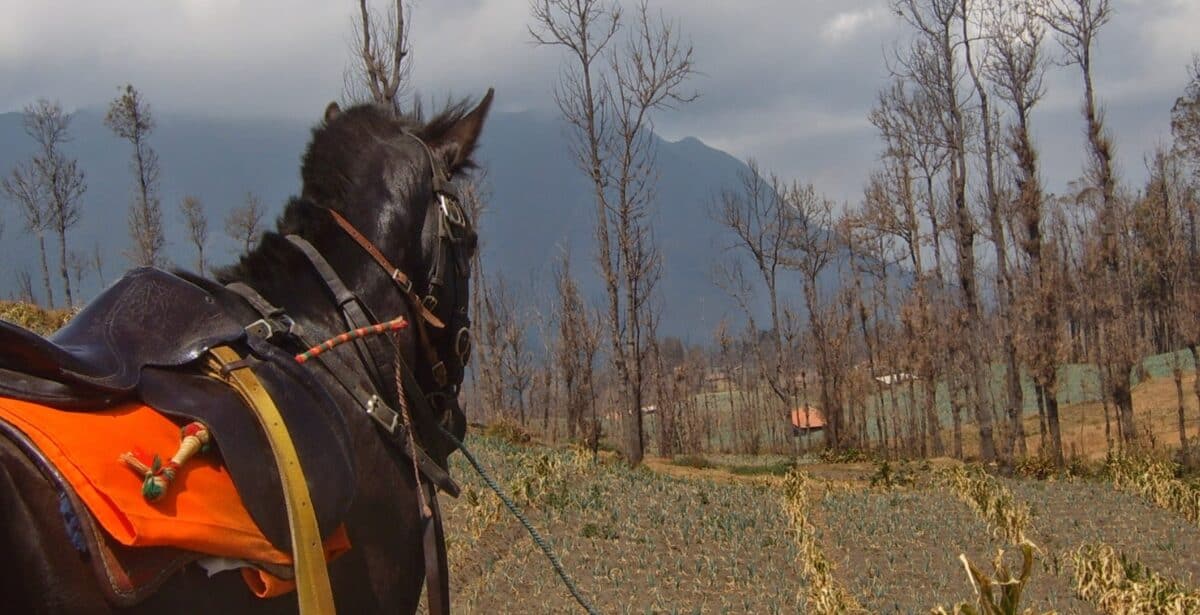My Horse Has A Runny Nose, What Does That Mean?

If you’ve ever had a stuffy nose, you know how annoying it can be. Now imagine how your horse feels! A runny nose in horses is just as uncomfortable for them as it is for us, and can often be a sign of an underlying health condition. In this blog post, we’ll discuss some of the most common causes of a runny nose in horses and what you can do to help your furry friend feel better.
Causes For Runny Nose
One of the most common causes of a runny nose in horses is allergies. Just like humans, horses can be allergic to pollen, dust, mold, and other airborne irritants. If your horse’s nose is runny and they’re sneezing or rubbings their face a lot, chances are they’re suffering from allergies. The best way to deal with allergies is to try to avoid exposure to the irritants that are causing the reaction. This might mean keeping your horse indoors during days when the pollen count is high or making sure their stalls are clean and free of dust. A little bit of clear snot now and then is very normal.
Another possible cause of a runny nose in horses is an infection. Infections of the respiratory system are quite common in horses, especially during the winter months when they’re more likely to be exposed to germs while their immune system isn’t at its peak. If your horse has a fever or seems lethargic in addition to having a runny nose, it’s possible they have an infection and should be seen by a vet right away. Treatment for an infection will usually involve antibiotics.
A third possible cause of a runny nose in horses is an injury to the head or neck. If your horse has been involved in an accident or had surgery recently, it’s possible that they havedeveloped a inflammation of the nasal passages (known as rhinitis) which can lead to a runny nose. Treatment for rhinitis will usually involve anti-inflammatory medication prescribed by a veterinarian.
Thin, loose, clear mucus coming from a horse’s nose is normally not cause for concern. If you see thick, colored (usually green or yellow), or malodorous mucus coming from a horse’s nose then you should take note.
When dealing with a horse with a suspicious runny nose, be sure to wash your hands thoroughly after handling them and to keep them as separated as possible from the other horses in order to prevent the spread of any illness if it turns out to be communicable.
Discharge Type
By looking at the nasal discharge it can be possible to learn about the horse’s ailment[1]Equine Vets: https://www.totalequinevets.com/client-center/resources/TEVApedia/equine-runny-nose.
Here are some indicators:
- Yellow or Green Mucus: Bacterial
- Clear Mucus: Viral or allergies
- Odorous, only from one side: Dental or sinus issue, like tooth infection
- Bloody: Injury or EIPH
Again, these are just general points, not hard rules. They can help you communicate any problems to your vet, or decide is a call to the vet is necessary.
Closing Thoughts
There are many possible causes of a runny nose in horses, but the most common are allergies, infections, and injuries. If your horse has a runny nose, it’s best to consult with a veterinarian who can help determine the underlying cause and provide appropriate treatment. With proper care, your horse will soon be feeling back to their old self!
References
| ↑1 | Equine Vets: https://www.totalequinevets.com/client-center/resources/TEVApedia/equine-runny-nose |
|---|
